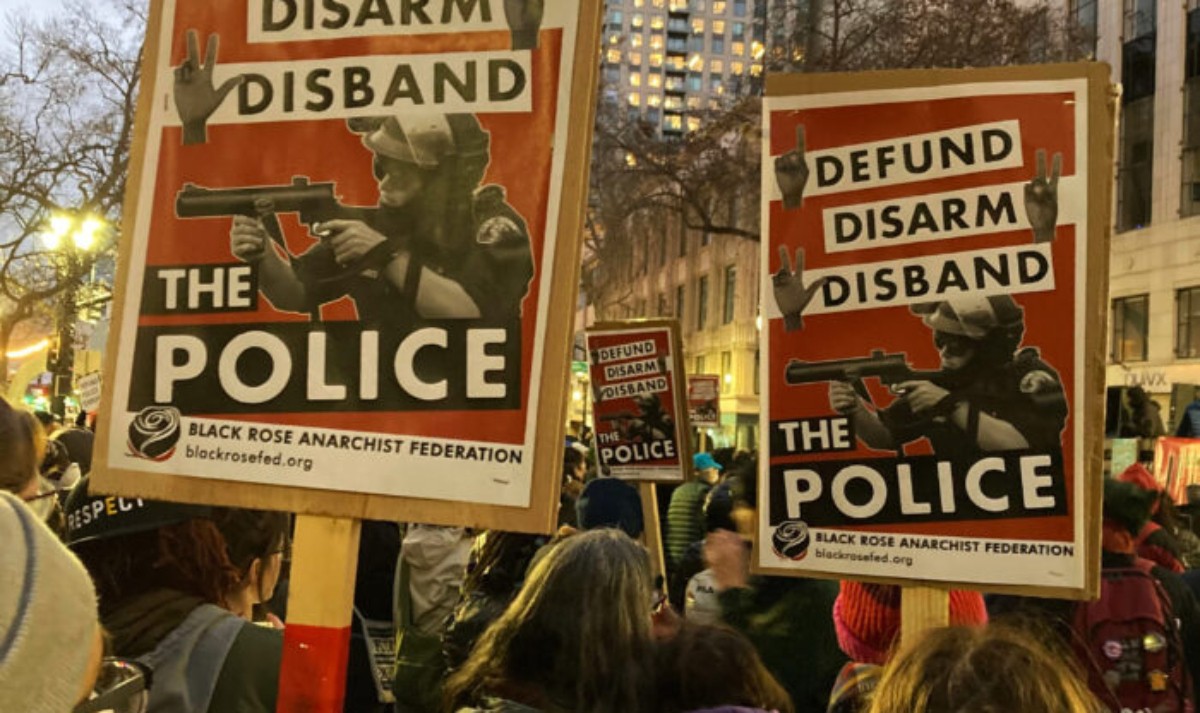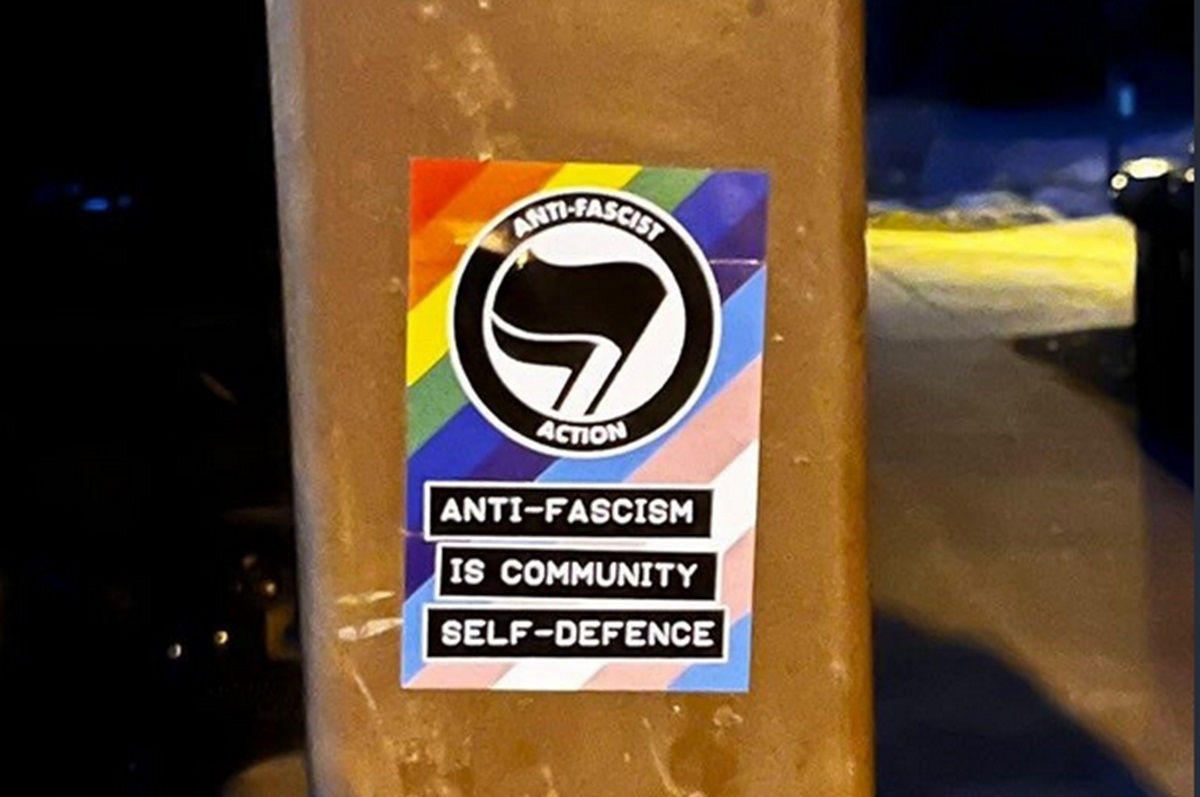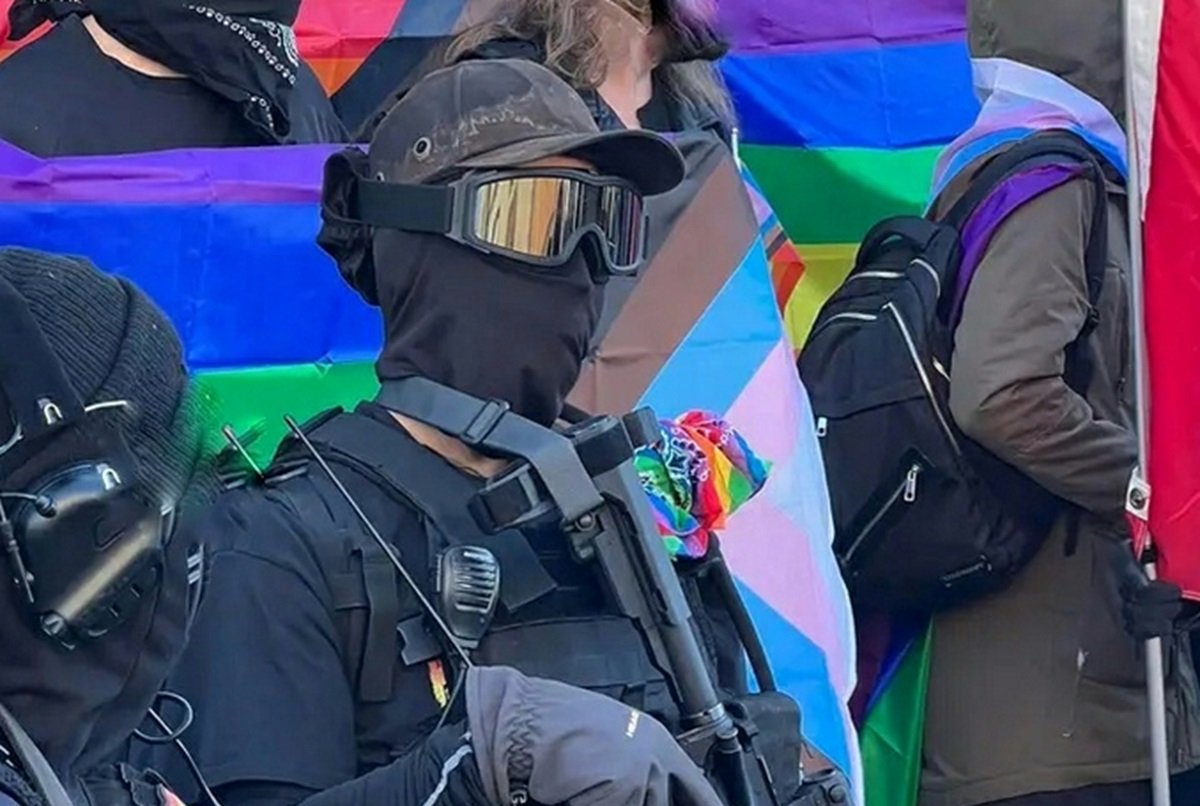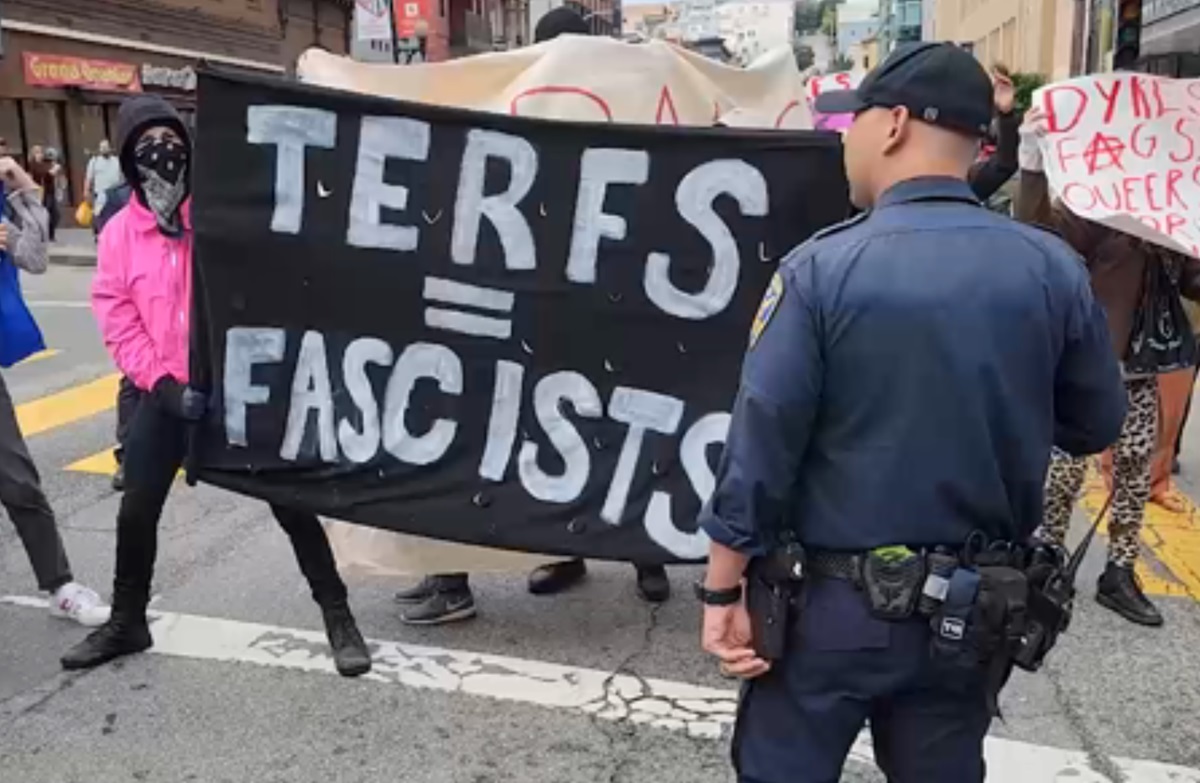Filed under: Editorials, Featured, Police, US, White Supremacy

Statement from Black Rose Anarchist Federation / Federación Anarquista Rosa Negra on the recent police murder of Tyre Nichols in so-called Memphis, TN.
On January 10, 2023, Tyre Nichols died from severe physical injuries, including a broken neck, sustained three days earlier at the hands, batons, pepper spray, and tasers of five Memphis, Tennessee police officers. As one of the lawyers for Tyre’s family described it, Officers Tadarrius Bean, Demetrius Haley, Emmitt Martin III, Desmond Mills Jr, and Justin Smith treated him like “a human piñata” during a January 7 confrontation.
Tyre Deandre Nichols was born on June 5, 1993, in Sacramento, California. He was two years old when Stephon Clark was born at a nearby hospital. The two lived near each other for the entirety of Stephon’s short life; Tyre left for Memphis shortly before the COVID-19 pandemic. These young fathers would face similar fates less than four years apart from each other: death at the hands of municipal police officers. Whereas Stephon died by gunshot, Tyre suffered what his city’s police chief described as “perhaps worse” than the Los Angeles Police Department’s infamous beating of Rodney King – another Sacramento, CA native – nearly seventeen years to the day preceding Stephon’s death.
Nine months before he was murdered, Tyre joined 30,000 coworkers at FedEx, one of Memphis’s leading employers. He started working there eight years after fellow workers at one of his employer’s top national competitors, United Parcel Service, refused to ship law enforcement equipment to Missouri in solidarity with the nationwide uprising against police brutality after Michael Brown was gunned down in Ferguson.
After police murders like these, widespread protests, die-ins, riots, and other street actions often take the nation to demand justice for the slain. These uprisings express – and generate – collective anger, antipathy, and opposition to the most discrete instances of racist state violence. Recently, these protests have raised the calls to defund, disarm, and dismantle their police departments and find alternative social service and safety systems. All the while, mainstream liberal talking heads proclaim “a moment of racial reckoning” that may finally curb the next Rodney. The next Michael. The next Stephon. The next Breonna. The next George.
And still, the next Tyre loses his life as budgets for police departments grow across the country after the political elite’s foremost leaders call for more money to hire more and “retrain” existing law enforcement officers. He becomes the next in a long line of people murdered by police: in 2022, these agents of the state killed a record-setting 1,186 people, over a quarter of which were Black – twice their share of the US population.
Thus, concrete experiences, from the long, hot summer of 1967 to the 1992 LA riots to the 2020 George Floyd rebellion, show that these righteous, empowering popular upswells tend to momentarily flare before dissipating from and being co-opted and repressed off the streets with neither the systemic transformation so many desperately crave nor the sustained organization needed to build power to bring it into reality.
Since recordings of the officers brutally arresting Tyre were released Friday evening, minimal street actions have materialized in Memphis and elsewhere. State administrators and politicians may have learned lessons from 2020’s George Floyd rebellion that helped curb collective discontent so far. Local city council members proclaimed they wanted to “send a very strong message” that “misconduct” would face reproach when they fired two EMTs who responded to Tyre, following the firing of the five officers. Similarly, Memphis Police Raines Precinct Commander Colonel Dennis McNeil “personally apologize[d]” for his officers’ actions, claiming they were “not indicative of the entire police department.” Even the head of the Federal Bureau of Investigation – the same institution that surveilled and harassed movements and individual activists for years, including Martin Luther King, Jr., and declared Black Lives Matter a movement of “Black Identity Extremists” – claimed he was “appalled” with the five Memphis officers’ behavior upon opening an investigation into their actions. Alongside public denouncements and workplace removals, the Shelby County District Attorney charged the officers with a litany of crimes, including second-degree murder, before Friday’s footage release. Typical public demands for minimal accountability seem to have been heeded early and effectively before people across the country had the time to absorb another digitally-recorded lynching.
Whether or not masses of people rise in revolt, the systems that sprout racist state violence will likely stay in place, reinforced and re-legitimated in new ways. How, then, might we dismantle these interlocking systems of domination that disproportionately maim, murder, and cage Black people? How do we transcend the cycle of police brutality → street demonstrations → promises of “accountability,” “healing,” and “change” → movement demobilization → state entrenchment?
Movement activists in Minneapolis, Minnesota and Atlanta, Georgia offer some lessons.
After Derek Chauvin squeezed the life out of George Floyd, Minneapolis’s eruption was best emblematized with the immolation of the Third Precinct police headquarters. Although the building’s barren shell symbolizes the city council’s lack of institutional progress to dismantle the Minneapolis Police Department promised in the throes of the uprising, neighborhood-based organizational structures became important prefigurations of a world without police.
When stores burned and white supremacists menaced residents in the uprising’s early days, local organizers helped coordinate block-by-block organizing to defend their communities and continue access to food, baby supplies, and other necessities. Neighbors exchanged phone numbers and email addresses, created lists of resources they could share between themselves, and helped meet each other’s needs. These organizing structures also spurred cross-neighborhood working groups like an “ad hoc fire squad” composed of community members that would quickly respond to nearby emergencies. Although these kinds of organizations have ebbed like the rebellion, many of their participants involved themselves and their neighbors in citywide campaigns to transform policing that have won significant – but not electorally significant – support.
In Georgia, a coalition of environmental, anti-carceral, and other community activists have coalesced with local residents for the last two years to stop Atlanta authorities from replacing a section of the Weelanuee Forest with a multimillion dollar police training facility christened “Cop City.” Such efforts aim to not only preserve the natural environment and a rich ecosystem but also to prevent state forces from further encroaching into – and possibly taking more of – their lives. Since 2013, state agents in the city have killed forty-eight people, three out of every four of whom were Black.
Although the state has launched a campaign of fear and intimidation against them by murdering campaign participant Manuel “Tortuguita” Paez Teran and slamming over a dozen activists with trumped-up “domestic terrorism” charges, movement organizers have answered the repression they’ve faced with escalating tactics. From hosting public demonstrations downtown to encouraging community members to flood city council comments denouncing its plans to targeted property destruction and living in makeshift treetop shelters that inhibit heavy machinery from knocking them down, the campaign shows few signs of slowing. Calls to “Stop Cop City” and “Defend the Atlanta Forest” have spread as far and quickly as the movement’s hashtags: over 2,000 organizations and individuals from around the world have signed the movement’s statement of solidarity, along with call-in campaigns to demand the project’s investors to pull their funding from it.
Atlanta’s forest defenders make clear that it is entirely possible to slow – and even push back – the seemingly ever-expanding arms of the state, and Minneapolis’s block-by-block organizing envisioned, if momentarily, how a cop-free and more communal world could be made. Both target earlier stages in the precipitating chain that culminates in police brutality: Atlanta at the heart of the state’s repressive expansion, Minneapolis at the intervening period when authorities might be called to “restore order.” And both demonstrate that systems of domination will not be toppled in one or even several explosive event(s), but require strategic, sustained, and responsive tactics and visions by many people to make long-term impacts.
However masses of people respond to published video of Tyre’s murder, stopping future ones requires ongoing organizing for popular power that can defend against, offensively strike, and ultimately supplant these systems from the ground-up. To do so, we must bring our full selves that we momentarily become in the streets – with our disgust and disdain for the systems and purveyors of violence, the joy and jubilance for a different world, and everything in between – back to the places where we live, work, play, and care, in our day-to-day lives.
In memory of Tyre Nichols and all others lost, in struggle with all who remain.





